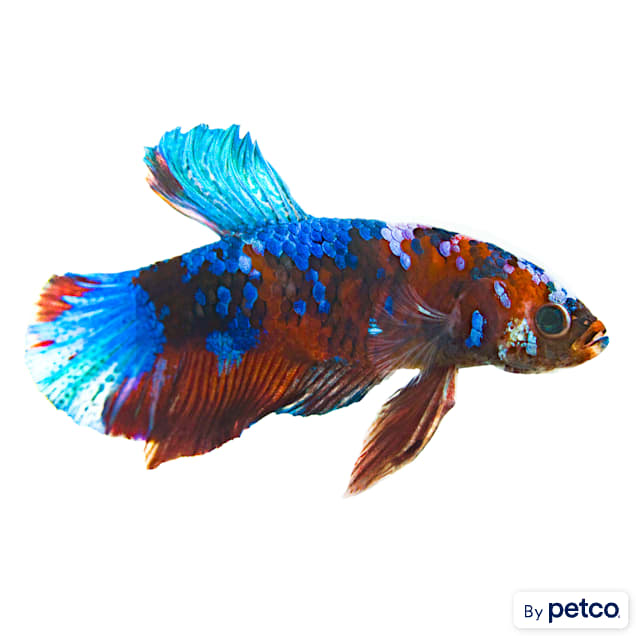The Ultimate Overview to Betta Fish Care: Important Tips for Preserving a Healthy And Balanced and Growing Fish Tank Setting
Reliable Betta fish treatment necessitates a thorough understanding of their special environmental and physiological needs. Establishing a suitable aquarium starts with selecting the right container size and ensuring optimal water problems, which are crucial for the health and wellness and health of your Betta. Additionally, comprehending appropriate feeding techniques and developing a conducive habitat can dramatically influence your fish's vitality and behavior. As you take into consideration these foundational elements, it ends up being clear that maintaining a thriving fish tank setting requires interest to detail and continuous dedication. What particular techniques will you implement to improve your Betta's top quality of life?
Selecting the Right Tank
Selecting the ideal container for your Betta fish is crucial to guaranteeing its health and well-being. Bettas prosper in environments that imitate their natural habitats, which normally include calm, warm waters. A tank dimension of at least 5 gallons is advised to give ample swimming space, as smaller sized tanks can lead to stress and wellness concerns for these vivid fish.
When picking a container, take into consideration the container's shape and purification system. A rectangular container is better to a dish, as it uses extra area for oxygen exchange. In addition, a reliable filtering system is important to maintain water high quality and decrease the frequency of water modifications (betta fish). However, it is essential to choose a filter with a gentle circulation, as Bettas are not solid swimmers and might struggle against solid currents.
Temperature regulation is an additional essential variable; Bettas like water temperature levels in between 76 ° F and 82 ° F. Buying a great heating unit will certainly ensure that the water remains within this range, advertising a healthy and balanced and energetic lifestyle for your Betta. Giving appropriate container decors and concealing places will aid reduce stress and anxiety and urge all-natural actions, even more enhancing your Betta's health.
Maintaining Water Quality
Preserving ideal water high quality is important for the wellness and long life of Betta fish. This calls for normal surveillance of different parameters, consisting of temperature level, pH, ammonia, nitrite, and nitrate levels. Bettas grow in temperatures between 76 ° F and 82 ° F, so keeping a stable temperature level is crucial. Unexpected fluctuations can cause stress and illness.
The pH level must ideally drop between 6.5 and 7.5. Regular screening using a reliable water testing package can aid make sure these specifications stay within the appropriate ranges. Ammonia and nitrite levels need to constantly be at 0 ppm, as also low concentrations can be hazardous to Betta fish. Nitrate levels ought to be kept under 20 ppm to stop long-lasting wellness problems.
Routine water adjustments are vital to keeping water high quality. In addition, integrating a robust purification system can help in preserving water clarity and quality, giving a healthier habitat for your Betta fish.
Perfect Feeding Practices
Giving a well balanced diet regimen is critical for the wellness and vivid coloration of Betta fish, as their dietary needs play a substantial role in their total wellness. Betta fish are meat-eating by nature, calling for a diet high in protein. A mix of top notch pellets, frozen or online foods such as bloodworms, brine shrimp, and daphnia can give the essential nutrients they require.
Feed your Betta fish 2 to 3 times a day, supplying just what they can eat within 2 to 3 minutes to avoid overfeeding and maintain water top quality. Overfeeding can cause obesity and health problems, including swim bladder condition. It is important to check their dietary consumption and change part sizes as necessary.
In addition to protein, a well balanced diet plan should consist of minerals and vitamins to her explanation promote ideal health and wellness. Take into consideration supplementing their diet regimen with top quality flakes or pellets specifically developed for Betta fish, as these commonly include required ingredients.

Developing a Suitable Habitat

Water high quality is critical; maintain a temperature in between 76 ° F and 82 ° F, and make certain the pH level varies from 6 - betta fish.5 to 7.5. Routine water changes of 25-50% weekly will aid click now keep toxins away and ensure a secure setting
Incorporating plants and concealing areas is vital, as Betta fish are normally territorial and enjoy having locations to explore and retreat. Live or silk plants, in addition to caves and ornaments, can create a revitalizing environment.

Regular Health Checkups
Performing routine wellness examinations is essential for making sure the health of Betta fish, as very early discovery of possible problems can avoid significant illness. These checkups need to incorporate an extensive examination of the fish's physical problem, habits, and ecological i was reading this variables.
Begin by observing the Betta fish for any indicators of distress, such as lethargy, loss of appetite, or uncommon swimming patterns. Additionally, inspect the fins and body for signs of staining, sores, or fin rot, which can show infections or parasites. On a regular basis keeping an eye on the water quality in the aquarium is similarly crucial; criteria such as pH, ammonia, nitrite, and nitrate levels must be preserved within optimum ranges to stop anxiety and ailment.
Additionally, take into consideration keeping a log of health and wellness observations and water high quality tests. Prompt treatment can make a significant difference in the recuperation of your Betta fish, ensuring a long and healthy and balanced life in a properly maintained fish tank setting.
Final Thought
In conclusion, successful Betta fish treatment pivots on creating and keeping an ideal aquarium setting. By adhering to these standards, aquarists can advertise the health and vibrancy of Betta fish, inevitably resulting in a thriving water environment.